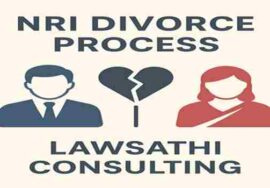What is mediation?
Mediation is a voluntary process in which an impartial and neutral mediator tries to bring together the disputant parties to arrive at a mutually agreeable solution. The parties to the dispute have an opportunity to ventilate their grievances and feelings and thereafter work out the solutions to meet their interests. The mediator neither decides nor imposes any solution on the parties, but creates a favourable environment to enable them to reach an amicable settlement.
Mediation is an alternative dispute resolution (ADR) process in which a neutral third party, known as the mediator, facilitates communication and negotiation between disputing parties to help them reach a voluntary, mutually acceptable agreement. It is a non-adversarial process, meaning it focuses on cooperation rather than conflict, and it is commonly used in various legal and non-legal contexts.
Key Features:
Voluntary Process:
Participation in mediation is usually voluntary, meaning the parties choose to engage in the process willingly. However, in some cases, courts may order mediation before proceeding with litigation.
Neutral Mediator:
The mediator does not take sides, offer legal advice, or impose a solution. Instead, they guide the parties in discussing their issues and exploring potential solutions.
Confidentiality:
The mediation process is typically confidential, meaning that anything discussed during the sessions cannot be used in court if the mediation fails. This encourages open communication.
Control by the Parties:
The disputing parties have control over the outcome. Unlike in a court case where a judge or arbitrator makes a binding decision, the parties in mediation are responsible for creating and agreeing to the solution.
Mediation is less formal than court proceedings, and the process can be tailored to the needs and preferences of the parties involved.
Focus on Interests:
The process often focuses on the underlying interests of the parties rather than just their legal rights or positions. This can lead to more creative and satisfying solutions.
Time-Efficient and Cost-Effective:
Mediation is usually faster and less expensive than going to court, making it an attractive option for many disputes.
Conclusion:
If an agreement is reached, the dispute is considered resolved. If not, the parties may choose to proceed to litigation or explore other options.
Types of Disputes Suitable for Mediation:
Family Disputes: Divorce, child custody, and other family matters.
Commercial Disputes: Business conflicts, contract disputes, etc.
Workplace Disputes: Employment-related issues.
Community Disputes: Neighborhood conflicts, housing disputes.
Civil Disputes: Personal injury, property disputes, etc.
Benefits of Mediation:
Preserve Relationships: By fostering cooperation, mediation can help maintain or even improve relationships between the parties.
Customized Solutions: The parties can create solutions that are tailored to their specific needs and circumstances.
Less Stressful: The informal and collaborative nature of mediation can be less stressful than court battles.
If you have any family related dispute or divorce related dispute- you can get a solution through mediation. Still, if issues aren’t resolved you have the option to go further. However, in many divorce cases, disputes are resolved by mediation.
Mutual divorce in Delhi, the couple agrees to live separately and dissolve their marriages by mutual agreement.
Disclaimer: This article is for educational and informational purposes only. It provides a general understanding of legal remedies but does not constitute legal advice. For specific legal guidance, you can just consult the legal matter expert.



